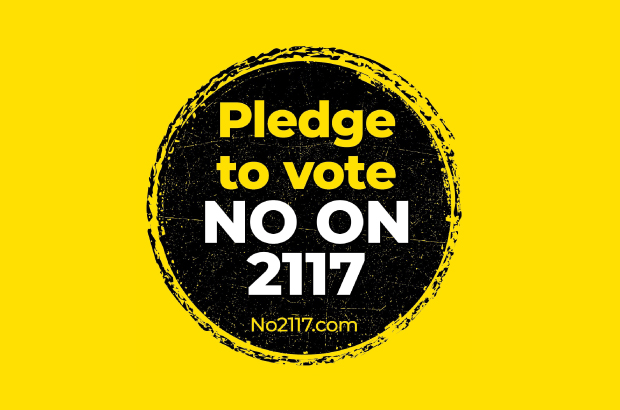Washington just unlocked over $1 billion to invest in climate action – yes, you heard that right, $1.46 billion has been raised for our communities to reduce climate pollution, clean up our air, cool down our homes, and protect Washington’s unique and diverse ecosystems. This is thanks to Washington’s Climate Commitment Act (CCA) and its cap-and-invest program, which resulted in the state’s third auction for pollution permits on August 30th. Through these auctions, large polluters in Washington purchase permits or “allowances” for every single metric ton of carbon that they emit. Last week’s auction generated $540 million dollars, after polluters purchased over 8.5 million allowances at a price of $63.03 per allowance, on top of the already $920 million generated in this year’s first set of auctions.
We’ve talked a lot about the CCA since its passage in 2021, and that’s because this policy is huge – for the first time, polluters are paying for their climate pollution and funding the solutions we need. With longer and stronger wildfire seasons and smoke events, extreme heat, and bigger storms, we have all felt the impacts of a changing climate in Washington. But solutions are on the way. Currently, state agencies are working hard to staff up and kick start the myriad new grant programs and funding opportunities to ensure communities all over the state truly benefit from the clean energy transition, with at least 35% of funds required to directly benefit overburdened communities and at least 10% to directly benefit Tribes as supported by Tribal resolution. We’ll report on these opportunities as soon as they come online, but in the meantime, this blog will highlight the promise of these investments for addressing local pollution and accelerating our transition to a clean energy economy.
Buildings: investing in clean heating and cooling for all
Buildings remain the sector with the fastest-growing emissions statewide due to the use of dirty fossil gas for heating and other appliances. In addition to polluting the climate, fossil gas in buildings has been linked to childhood asthma and worse outdoor air quality. Luckily, a better option is already available: a clean, reliable electric heat pump that can also filter air and provide cooling. With Washingtonians experiencing worsening climate impacts such as extreme heat and wildfire smoke, it is more important than ever for families to have safe and healthy indoor spaces.
However, heat pumps can be cost-prohibitive for low- and moderate-income (LMI) families, which is why we need funding to make these amazing appliances available to all.
Using CCA revenue, the Washington legislature has already invested $80 million in electric heat pumps for low and moderate-income families, small businesses, and adult family homes, complementing over $80 million from the federal Inflation Reduction Act. These programs are being set up and will likely go into effect next year. While this amount of funding is a great start, we hope to see more CCA revenue dedicated to these programs to enable all LMI families to install a heat pump.
Medium- and Heavy-Duty Vehicles: tackling a major source of global and local pollution
Trucks, buses, delivery vans, and school buses: medium- and heavy-duty vehicles provide important services to our communities, but are currently fueled by dirty diesel that causes significant health-harming air pollution. This is especially true for communities that live near major transportation corridors, which include many Black and Indigenous communities and communities of color. On top of causing local air pollution, climate pollution from this sector has unfortunately been on the rise: while climate pollution from passenger vehicles has leveled off in recent years, diesel pollution has roughly doubled since 1990.
Through CCA funds, Washington will finally begin to clean up these dirty vehicles. The Legislature invested $120 million into a new incentive program that addresses the greatest barriers facing zero-emission MHD vehicle uptake – funding for upfront cost assistance for new zero-emission trucks and installation of charging infrastructure to support a network of new trucks and buses for businesses, schools, local governments, independent owner-operators, and more. The design of this new program is just getting underway. CCA funds also are being used to help transit agencies across the state, with almost a dozen transit electrification projects receiving grants this budget.
Air Quality: Addressing historic health disparities
CCA funds will not only turn the tide on state-wide climate pollution, but also on local air pollution, an often imperceptible threat that has significant short and long term impacts on our health. Due to historic injustices and racist practices such as redlining, some of the state’s worst air quality is disproportionately concentrated in Black and Indigenous communities as well as other communities of color.
Recognizing these compounding health impacts, over $60 million in CCA funds is specifically targeted for improving air quality and health disparities in overburdened communities. Ten million of these funds will help expand the state’s air monitoring network so we better understand the greatest sources of pollution, set stricter pollution standards for these sources, and require reductions in harmful pollutants. Importantly, $50 million of these funds will also go towards two new grant programs that fund community-led solutions to mitigating pollution and climate impacts. The Departments of Ecology and Health are working to stand up these new programs.
More to come
These investments offer a small but significant window into the opportunities available thanks to CCA funds. We will also see over $40 million available to Tribes and other overburdened communities to support their ability to consult and engage on policies; $25 million investment in salmon habitat restoration; $83 million for protection and enhancement of critical forests; and so much more! These auctions mark the beginning of a new phase in Washington’s clean energy transition, where years of policy and planning finally become reality for us and our communities. As the program continues raising hundreds of millions of dollars for climate solutions, we will check back in as new funding opportunities, success stories, and ways to engage emerge.






